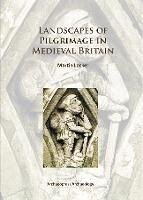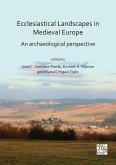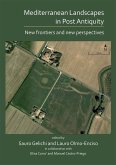This book seeks to address the journeying context of pilgrimage within the landscapes of Medieval Britain. Using four case studies, an interdisciplinary methodology developed by the author is applied to four different geographical and cultural areas of Britain (Norfolk, Wiltshire/Hampshire, Flintshire/Denbighshire and Cornwall), to investigate the practicalities of travel along the Medieval road network including the routes themselves, accommodation, the built environments and natural topographies encountered. An introduction, assessment of current theory and scholarship is provided, followed by an explanation of the methodology used. The four case studies are then presented (Ely to Walsingham, Salisbury to Winchester, St Asaph to Holywell, and Camelford to Bodmin). Within each case study, both the selected starting point for the pilgrimage (typically either a locale confirmed in the historical record as linked to the pilgrim destination, or a settlement of some significance within the local area and thus well connected to the route network), and the site of the saint cult itself are analysed for their growth, reaction and accommodation to the pilgrim phenomenon. Also addressed are the route networks of the county as a whole, relationships to economic centres and their impact on travel possibilities, the topography, the distribution patterns for saint dedications in parish churches within the area, material culture and the ecclesiastical built environment (for example pilgrim badges, monasteries), and the physical landscapes through which the pilgrim travels. Here, the interaction between the pilgrim and the environments through which they move is addressed. Considerations include fatigue, exertion, panoramas and way-finding, route visibility, sight lines to monuments, folklore within the landscape, and the potential echoing of Christian scriptural motifs within certain landscape types/features (e.g. wilderness and sanctuary).
Dieser Download kann aus rechtlichen Gründen nur mit Rechnungsadresse in A, B, BG, CY, CZ, D, DK, EW, E, FIN, F, GR, HR, H, IRL, I, LT, L, LR, M, NL, PL, P, R, S, SLO, SK ausgeliefert werden.









